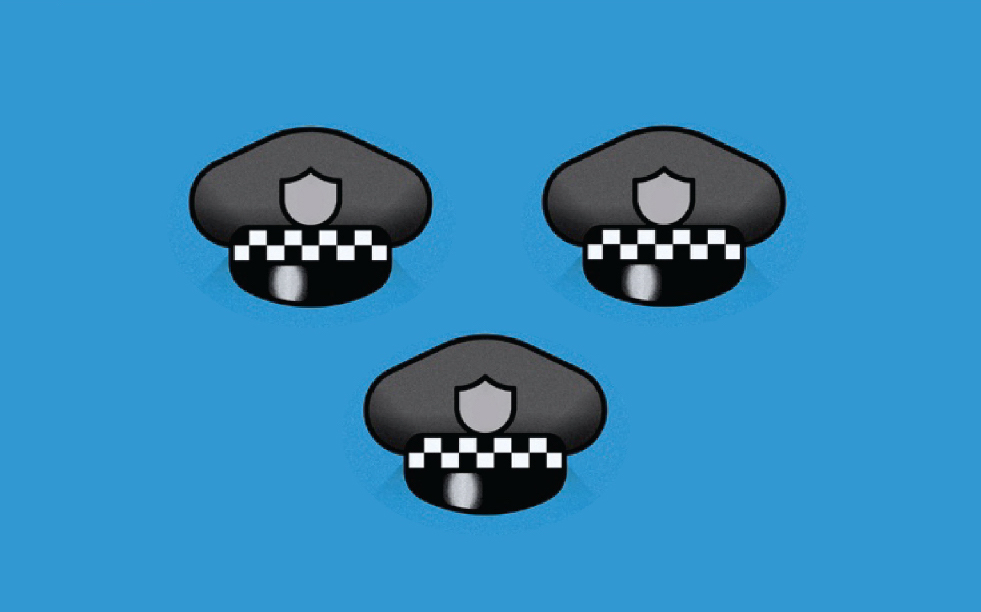The last time the Weekly surveyed the landscape of police accountability in Chicago, just over two years ago to the date and a month before the Laquan McDonald video was released, it looked considerably different. Scott Ando, a controversial longtime DEA agent, was still running the Independent Police Review Authority (IPRA)—an agency which no longer exists. Garry McCarthy was still the tough-on-crime police superintendent, Anita Alvarez was still the tough-on-crime State’s Attorney, and the most vocal reform advocate in city government, Lori Lightfoot, had just been appointed president of the Police Board. The last two years have been some of the most tumultuous in the century-and-a-half-long battle over who will oversee and discipline the police force, and have arguably produced some of the most potentially impactful changes since the 1960s. However, as every person featured in this article would likely say, the work of establishing true, effective police accountability in the city is just beginning.
Joe Ferguson & Laura Kunard
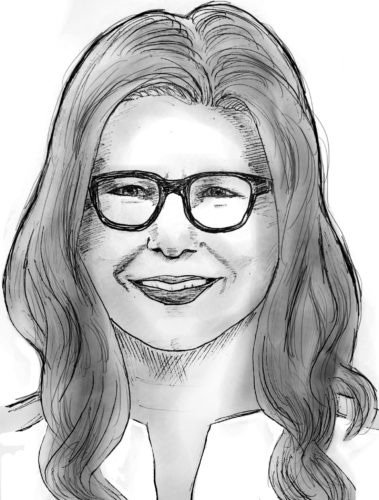
One of the more promising recent additions to the field of oversight agencies was the creation of the Deputy Inspector General for Public Safety position, which heads a twenty-three-person division of the city’s Office of Inspector General (OIG) with the purpose of exclusively reviewing the practices and specific investigations of the Chicago Police Department (CPD) and the Civilian Office of Police Accountability (COPA), IPRA’s newly-opened replacement. The position was created as part of a reform ordinance that Mayor Rahm Emanuel forced through City Council last year that also replaced IPRA with COPA.
Thus far, there has been little public evidence of the OIG’s work since the position was filled by academic and police reform expert Laura Kunard in April. However, city Inspector General Joe Ferguson has a far better reputation for independence and integrity than nearly any other city department (he is, on the other hand, appointed by the mayor).
There are serious concerns from many regarding the lack of transparency at the Inspector General’s office. The state law that allows units of government to create Inspectors General includes broad, sweeping exemptions to the state Freedom of Information Act, barring the press and public from obtaining any files from their reports. This stands in stark contrast to the status of investigatory reports and files from COPA and CPD investigations, which—after decades of back-and-forth litigation between the city and civil rights lawyers—are all but completely open and available.
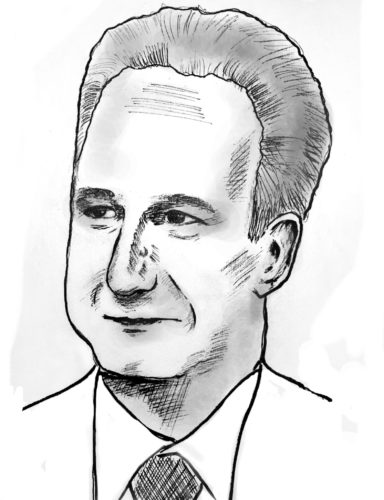
The city is using these public records exemptions to block the release of Ferguson’s investigation into the Laquan McDonald shooting, which he took over from IPRA and which led Superintendent Eddie Johnson to file for the discharge of five officers who were at the scene—five fewer than the amount Ferguson recommended firing—after four other officers named in the report retired in quick succession. (According to files from the report leaked to the Tribune, the report also implicates Johnson in having seen the video, and deciding the use of force was justified.) This has led the Invisible Institute’s Jamie Kalven, the plaintiff in a successful lawsuit that resulted in full transparency of police internal investigatory documents in 2014, to sue the CPD for its copy of the report. The suit remains pending. (The Police Board hearings for the five discharged officers have been suspended while criminal trials are proceeding.)
Still, the Deputy Inspector General position has been one of the least controversial reforms implemented thus far and was directly advocated for by both Emanuel’s Police Accountability Task Force, headed by Lightfoot, and activist groups such as the Community Renewal Society, which last year authored a separate ordinance filed by 28th Ward Alderman Jason Ervin that would have created a nearly identical office. The founding ordinance also mandates that the office publish its findings after all audits and investigations, though it has yet to do so.
Lori Lightfoot
The largest city-employed thorn in Emanuel’s side throughout the lurching, meandering reform process has been Police Board President Lori Lightfoot. Lightfoot also headed the blue-ribbon Police Accountability Task Force that provided much of the blueprint for reform that Emanuel claims to have been following. As the head of the Police Board—a mayoral-appointed quasi-judicial body that largely exists to hear discharge and other serious disciplinary cases filed by the superintendent of the CPD—Lightfoot has not made her popular with the city’s activist groups, but she has repeatedly criticized both Emanuel and Supt. Johnson for the drawn-out, tortured nature of reform implementations.
This has caused tensions in her relationship with Emanuel, who appointed her in 2015. Just two months ago, Emanuel publicly waffled over whether or not to reappoint her to the position before ultimately deciding to do so, leaving her twisting in the wind for weeks. A former chief administrator of the Office of Professional Standards—the much-derided internal CPD precursor to IPRA—and federal prosecutor, Lightfoot has brought an intensity and highly public persona to the Police Board.
During her tenure, some controversial practices of the Police Board have been curbed. Of the forty cases that the Police Board has closed since her July 2015 appointment, the Board vacated or lessened charges in just two, according to information provided in response to public records requests. Previously, the Board was notorious for overturning disciplinary decisions—a 2009 analysis of ten years of Board decisions by the Chicago Justice Project found that the board followed the superintendent’s recommended disciplinary charges just forty-two percent of the time. However, in twelve cases under Lightfoot—including that of Dante Servin, who killed Rekia Boyd—the officer resigned before the Board heard their case, retaining their pensions.
Kim Foxx
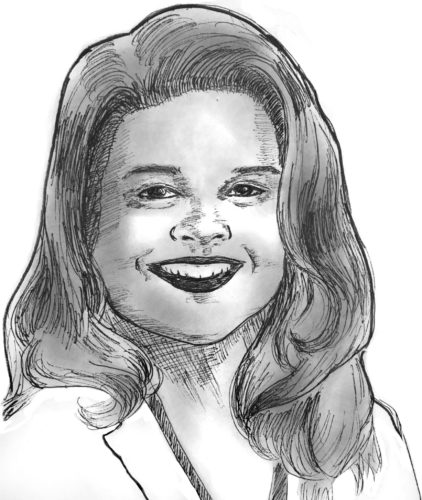
One of the only aspects of police oversight in Chicago that is not controlled directly or indirectly by Emanuel is the office of State’s Attorney Kim Foxx, who was elected on a progressive reform agenda that involved calling for special prosecutors to be appointed to investigate police shootings for criminal charges. To date, she still has yet to appoint one; despite her office filing first-degree murder charges against an off-duty CPD officer and a Chicago Amtrak police officer in fatal shootings this year, the State’s Attorney’s office has repeatedly shrugged off calls to appoint special prosecutors in other cases. Just weeks ago, in a court hearing regarding a petition for a special prosecutor in the fatal shooting of Flint Farmer by the CPD, an Assistant State’s Attorney conceded that even though Foxx had promised and articulated the need for special prosecutors in police shootings on the campaign trail, she had reconsidered upon taking office and “has made internal changes to the way the office investigates police shootings,” the Tribune reported.
Even when trying to fix the issue legislatively, she has stumbled; after Foxx authored a bill co-sponsored by state Senator Kwame Raoul that would require the Office of the State Appellate Prosecutor review police shootings that her office declines to prosecute, civil rights lawyers and investigators criticized the legislation for handing over the power to the controversial, little-known state appellate prosecutor’s office. “I’m sure Kim Foxx was unaware of [its] poor track record,” one told political reporter Curtis Black. “…It’s not an office that stands for justice.” (Governor Bruce Rauner signed the bill in August, but with the language regarding police shootings altogether removed. In its stead, lawmakers ordered the Commission on Police Professionalism, a barely-existent body created by an omnibus crime bill in 2015, to issue a completely unrelated report that offers recommendations about police training to the Governor and General Assembly next year.)
None of this is to say she hasn’t made some good in some areas. Her office has vacated some convictions in cases in which defendants claimed corrupt former CPD Sergeant Ronald Watts and his team had framed them, and dropped some charges (but notably not others) in cases where similar allegations had been made about another corrupt former sergeant, Reynaldo Guevara. Regardless, to convince the public and especially the activists behind the #ByeAnita campaign that delivered the election for Foxx—who were already wary of her, as she’s still, you know, a prosecutor—she will have to do a good deal more than some internal rearranging and drafting legislation.
Lisa Madigan (and whoever replaces her)
After Emanuel publicly backtracked on his promise to enter into a consent decree with the Department of Justice, many voices, from Lori Lightfoot to ousted U.S. Attorney Zach Fardon to scores of activist groups, called on the mayor to stick to his word and obtain a decree with a court monitor to ensure and enforce reforms. Illinois Attorney General Lisa Madigan was among them, and due to her office’s independence and resources, she was in a unique position to back up the call. In August, Madigan filed a federal lawsuit asking a judge to enter the CPD into a consent decree with her office, instead of the DOJ—with Emanuel’s grudging approval.
It was the second such lawsuit filed in recent months—the first was by a coalition of victims of police brutality and community groups represented by civil rights lawyers at Northwestern University and the University of Chicago—and it drew a mixed reaction. Some reform advocates applauded Madigan’s suit, as the coalition’s suit—generally referred to by the name of one of the organizational plaintiffs, Black Lives Matter Chicago—is far more sweeping and has less of a chance of succeeding in court than Madigan’s suit, especially with the city fighting every step of the way.
At the same time, many more radical activists, such as the attorneys representing Black Lives Matter and other organizations in or supporting its lawsuit, condemned Madigan’s suit, which was filed with Emanuel’s cooperation and apparent support, as a potential backroom deal. And, more importantly, Madigan’s consent decree could shut communities directly affected by unconstitutional policing out entirely, as Madigan’s office has never brought this kind of case before and therefore doesn’t have the precedent of community engagement in the consent decree process that the DOJ does. (The ACLU of Illinois and some community groups, including the Community Renewal Society, filed their own suit seeking a court order for the city to reform its policing of people with disabilities this month, contending the other two lawsuits had not included people with disabilities in their injunctive requests.) This view of the decree as a backroom deal cannot be helped by a recent joint filing in the case by both Madigan and Emanuel to put a confidential protective order over most documents produced during the suit.
There is also the question of who will be around to keep up the Attorney General’s end of the bargain after Lisa Madigan leaves office next year. She announced she would not run for reelection after fourteen years in office shortly after filing the lawsuit against the CPD. The pool to replace her includes former Governor Pat Quinn; state Senator Raoul, an ambitious former Cook County prosecutor who represents the city’s lakefront from Lakeview down to the border with Indiana; Chicago Park District board president Jesse Ruiz; north suburban Highland Park Mayor Nancy Rotering; former federal prosecutor and pundit Renato Mariotti; 33rd Ward Democratic Committeeman Aaron Goldstein; Erika Harold, the sole Republican candidate and a former Miss America; and Sharon Fairley, the then-head of the newly-minted Civilian Office of Police Accountability (COPA). Fairley, in what 9th Ward Alderman Anthony Beale described as “truly bad timing,” announced her potential candidacy just eleven days into the new agency’s life, leaving a leadership vacuum in an agency that has a lot of work to do to establish any kind of trust in over-policed communities. Her departure comes a little under two years after being appointed to reform IPRA in the wake of the Laquan McDonald video release, making her the shortest-serving head of civilian police oversight in Chicago since the system was established in 1973. (The second-shortest-serving? Lori Lightfoot.)
The Weekly reached out to all announced candidates last week (with the exception of Quinn, who announced his candidacy late on Friday afternoon) to ask whether they supported Madigan’s lawsuit, and whether the community groups who have also sued should be directly participating in the creation of the consent decree. By press time, only Rotering and Goldstein had responded. In a statement, Rotering said she supports Madigan’s suit, and called on Madigan to “work with the groups that have brought the other suits to coordinate efforts.”
Goldstein, who has worked in various positions in the Cook County Public Defender’s office on and off since 2001 and was a member of former Governor Rod Blagojevich’s defense team, said in a phone interview that he supports Madigan’s efforts, and that the best way for community groups to be “fully involved” with the consent decree process is for all three lawsuits to be consolidated into one case so that there is a real seat at the table for everyone.
“The mayor is not a trustworthy arbiter in this. All this came about because of Laquan McDonald, and the mayor’s handling of that was not good, to put it lightly,” he said. “As members of the community, when they’re told there’s a consent decree, or we’re gonna try to get a consent decree, and the mayor’s office is involved, there’s a lack of trust—and rightfully so…We don’t know whether it’s gonna be right or wrong. It could go wonderfully and we could actually get some work done. But that’s yet to be determined.”
Sharon Fairley (and whoever replaces her)
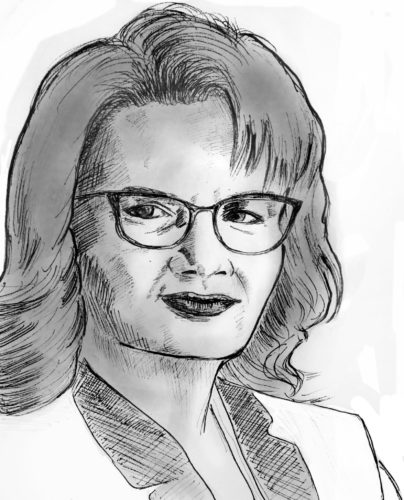
Fairley, as a Maryland-raised former marketing executive, federal and state prosecutor, and attorney for Inspector General Joe Ferguson’s office before Emanuel appointed her to lead IPRA, was a complete political unknown in the state and still largely is. Her tenure at IPRA-turned-COPA began to result in an agency applying higher levels of scrutiny to their investigations, but was still very much unfinished.
The agency crafted new rules and released them for public comment for the first time in its history, and it published critical studies of practices under previous administrations. The rates at which it sustained findings against CPD officers and reopened old cases for potential new administrative charges have begun to far exceed those of previous administrations. Written into COPA’s ordinance are a guaranteed budget floor and the power to hire its own attorneys, both things that had hampered investigations previously. The agency also cleaned house, only rehiring about thirty IPRA staffers (though, according to the Tribune, eleven of those staffers’ employment dates back to the Office of Professional Standards, which was removed from the CPD and renamed IPRA in 2007).
But there have been many ups and downs in the history of civilian oversight in Chicago (though—from the civilian’s point of view—mostly downs), and there is no guaranteed sticking power to COPA or its independence. Its administrator, in the written ordinance, is meant to be chosen by a Community Oversight Board—but none exists. The Board was the third promised tier of Emanuel’s reform agenda, but his office claims that it has not implemented that aspect yet due to unnamed “community leaders” requesting that the Board be created by a “community-led process.” Finding a replacement for Fairley thus now falls to Emanuel, who appointed retired Cook County judge Patricia Banks to run things temporarily. In the meantime, a committee co-chaired by his ally, 30th Ward Alderman Ariel Reboyras, who also chairs City Council’s Committee on Public Safety, and Illinois Justice Project director Paula Wolff will find a permanent replacement.
GAPA & Alderman Ariel Reboyras
The “community leaders” who requested that the Emanuel administration delay implementing the Community Oversight Board are known as GAPA: the Grassroots Alliance for Police Accountability. GAPA consists of members of various community organizations, including the Community Renewal Society, Enlace, Inner-City Muslim Action Network, South West Organizing Project, and the United Congress of Community and Religious Organizations (UCCRO). GAPA is funded by the Chicago Community Trust and other foundations, and headed by UCCRO organizer Mecole Jordan. Members of what would become GAPA protested the potential creation of a Community Oversight Board and entered into an informal arrangement with the Mayor’s Office to make recommendations for how to build the Board from the grassroots level up, Jordan told the Weekly in a phone interview.
In the year since the COPA-creating reform legislation passed, GAPA has conducted education sessions with its own members and the public at large, so its constituency—ostensibly, the whole city—can better understand what it is being asked. It produced a Community Conversations Report, published in March, summarizing feedback the group had received from the public. Since then, whenever she’s been asked, Jordan has said that their recommendations are forthcoming but has declined to say when. “We’re looking forward to receiving their recommendations,” a spokesperson for Emanuel told the Tribune earlier this month.
In the meantime, the situation leaves far more power in the hands of Reboyras, a longtime Northwest Side alderman who has been one of Emanuel’s closest allies in City Council. As co-chair of the committee charged with finding Fairley’s permanent replacement and the chair of the Committee on Public Safety, he is a gatekeeper twice over for whoever is chosen, like he was for IPRA reform legislation efforts (though, according to the Daily Line’s CloutWiki, he has been “visibly uncomfortable” presiding over meetings dealing with police reform and has thus held many of them as joint meetings with the Committee on Budget and Government Operations, allowing him to “pass the gavel” to bombastic 34th Ward Alderman Carrie Austin).
Superintendent Eddie Johnson
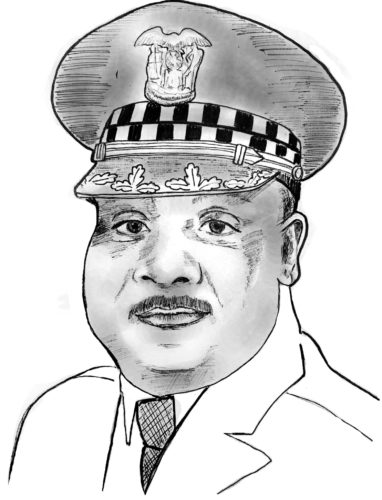
For everything that anyone outside of the Chicago Police Department can do, little of it will be of any good if Superintendent Eddie Johnson, who was handpicked by Emanuel over three options statutorily presented to him by Lightfoot’s Police Board, does not succeed in implementing internal and external reforms. The jury is still out and will be for quite some time: He has been busy, but the degree to which his efforts have been substantial and deep enough to stick or whether they are simply performative remains to be seen.
According to a Chicago Reporter analysis, the city has only fully implemented fifteen of the Department of Justice’s ninety-nine recommendations in its report—and of those fifteen, many were implemented in one fell swoop when the CPD updated its Use of Force policy for the first time since 2002. The new Use of Force policy, while much improved over the previous one, faced strong criticisms from civil rights attorneys for, among other things, not defining clearly enough when officers can use force in specific situations, such as protests, or against certain people, such as pregnant women or people with disabilities. Some of these changes improved accountability measures in the use of force review process. Another fifteen recommendations have been partially implemented, like allowing members of the Police Board access to more information, but the majority of DOJ recommendations remain in planning phases, completely untouched or too unclear to tell what progress has been made.
While not all of those recommendations in the DOJ report fall directly under Johnson’s jurisdiction, many do. The CPD has yet to require that officers with crisis intervention training respond to situations involving people in mental health crises or equip and train its officers in first aid. It hasn’t implemented its early-intervention system or developed a foot pursuit policy—both crucial front-end components of ensuring accountability. On the back end, it hasn’t improved its disciplinary review process, or even published the annual report it said it would in September—which would have been its first annual report since 2010. The CPD’s Bureau of Internal Affairs’ website still has almost no information about its investigations, despite investigating the vast majority of complaints against police. All of which may be to say, there’s too much that hasn’t happened to evaluate Johnson’s performance—which is perhaps an evaluation in itself.
Mayor Emanuel, Walter Katz, Ed Siskel
Regardless of whatever Eddie Johnson does, though, he is not the end of the line in police accountability. The Chicago Police Department has always been a political arm of the mayor’s office, the way all city departments are, and under Mayor Rahm Emanuel, the tradition has continued. When Emanuel felt he needed a tough, physically imposing, data-driven police chief, he brought in Garry McCarthy from Newark, New Jersey. McCarthy implemented rigorous data collecting and analysis programs that were part of a “broken windows” policing strategy that made his mentor, former New York Police Department Commissioner Bill Bratton, famous.
One result was a remarkable increase in “street stops,” which are better known as “stop-and-frisks.” In the first two years of his tenure, the CPD’s use of street stops spiked by more than fifty-eight percent. In 2015, the ACLU of Illinois found that the CPD under McCarthy used street stops at a rate that far exceeded New York City’s at the height of its program, preceding a lawsuit that resulted in reforms to the system, a court monitor to oversee the process, and an unexplained plummet in the amount of street stops conducted.
When that style of policing no longer became politically viable for Emanuel—as evidenced by having to now pay for a court monitor to oversee reforms in just one small aspect of policing in Chicago, followed later that year by the release of the Laquan McDonald video—he removed McCarthy and, in a tortured public process, eventually installed CPD lifer Eddie Johnson. Johnson didn’t initially talk the talk—he famously claimed to have “never seen” police misconduct in his nearly thirty years on the force—but at this point seems to be a perfectly compliant chief to Emanuel’s various political needs in the aftermath of the citywide protests calling for his resignation after the McDonald video. As many of Emanuel’s processes are, the post-McDonald reform of the police department has been haphazard, incremental, and with far more self-congratulatory press conferences than appropriate.
There is a lot going against the mayor, but there is potential for him to get this right. His hiring of former San José, California Independent Police Monitor Walter Katz to work in his office as his top public safety aide brings a certain amount of reform credentials by itself, though there is little to publicly show for it. A more opaque recent hire is Edward Siskel, the city’s new top lawyer, who replaced controversial Corporation Counsel Stephen Patton. Though city lawyers generally keep their work behind the scenes, sometimes it leaks out. For instance, in 2015, then-DNAinfo columnist Mark Konkol reported that, along with his data-driven stop quotas, McCarthy also tried to implement reform to the accountability system, going so far as to request that Emanuel appoint a blue-ribbon panel to suggest reforms to the system in early 2013. That resulted in a little-known two-year pro bono report published in late 2014 full of recommendations later echoed in the Police Accountability Task Force and DOJ reports—recommendations which Patton blocked McCarthy from implementing, according to DNAinfo’s sources. Of course, by the time the report was completed, Laquan McDonald had been killed—and, in that case, the system had already been allowed to sweep his death under the rug.
Sam Stecklow is a journalist at the Invisible Institute and a contributing editor to the Weekly
Support community journalism by donating to South Side Weekly

